Ranking the Best Matches in AFCON History
Written by ABR on 22/08/2023
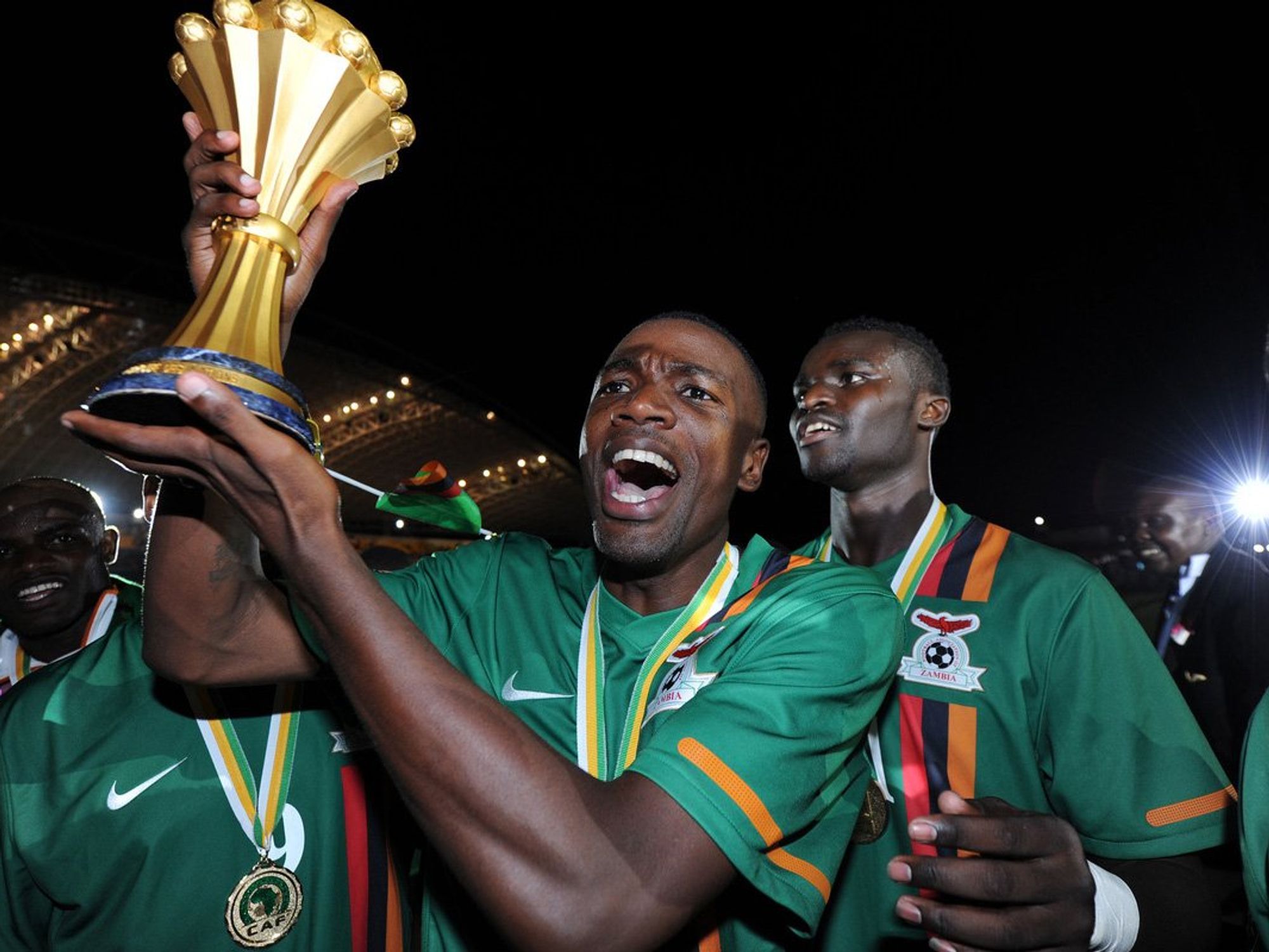
The African Cup of Nations, popularly known as AFCON, is the most prestigious football tournament on African soil. Players competing at this level fight for the title of being crowned the kings of African football for the next two years.
AFCON was first held in 1957, and, since 1968, the tournament has been hosted every two years. These games are broadcasted not only across the African continent but also across the world.
Over the years, the format of the AFCON competition has shifted slightly, varying from 3-24 teams, starting in group stages and then progressing into knockout stages with a chance for the best third-placed teams in the group to progress.
The tournament has been a grand stage in the talent identification of local and internationally based-African players. The zealous rivalries of the AFCON nations monumentally flaunt the best talent both at an individual level and within the team bringing out the magic of football, especially on the African field.
The success of the tournament has lasted several editions, and come January 2024, Ivory Coast will welcome African nations for the 34th edition.
Let’s travel down memory lane and revisit the best AFCON games in history.
Egypt vs. Cameroon (1986)
In 1986, Egypt hosted the 15th edition of the African Cup of Nations at Cairo Stadium. This game recorded the most ever spectators at an African game. The stadium was bursting at the seams with 120,000 spectators having turned up. Here, in the final match, Egypt played against Cameroon, another African football powerhouse.
Fans didn’t hold back as the dress code of the day was smart-formal in suit and tie. This match went on to finish 0-0, Egypt claiming a 5-4 victory over Cameroon in penalties that day, but the atmosphere was electric.
From the roar of the fans to the fierceness of the players, it was a kind of atmosphere that definitely affected the level of the game. And in an atmosphere of that intensity, it’s not hard to imagine the immense pressure the players were under as every mistake or missed opportunity was roared by the fans.
Madagascar vs. Tunisia (2019)
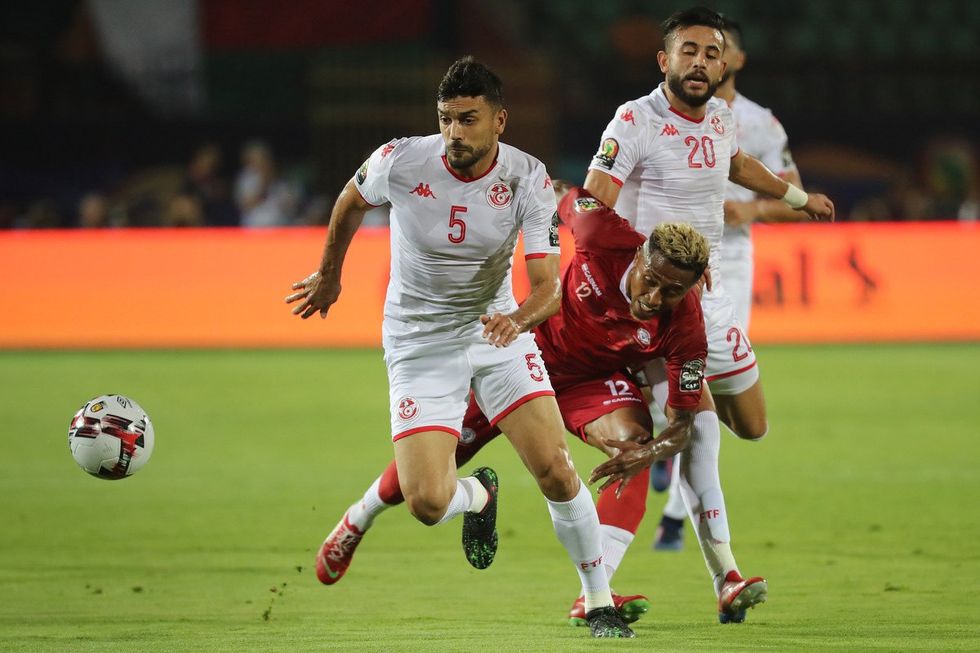
The tension of a football match is palpable both live and behind a screen, and the shared chemistry and passion among fans can create an atmosphere that either leaves devastating heartbreak or ebullient joy.
Depending on which side of the coin you pick, unexpected defeat can leave a fan wrecked. This is exactly what happened in 2019 when Madagascar qualified for the AFCON.
On deck was an underdog team who qualified for the first time until losing in the quarter-finals while simultaneously raising eyebrows by beating a heavy-weight nation.
Madagascar’s qualification for the tournament made AFCON history. The Southeastern Coast nation took on the challenge, surprising itself and the African football fraternity. For a not-so-revered team to qualify and top the group which included teams such as Nigeria, Guinea, and Burundi was a historical moment that shook many African nations and football supporters.
As football would have it, to qualify past the group stages all the way to the quarter-finals without losing a match, raised a bar that placed big expectations on Madagascar to go all the way and win the tournament.
However, fate played its hand, despite several victories — including a draw in the first game against Guinea and later beating Burundi 1-0 — which secured their spot into the knockout stages. Their final game of the group stages was against Nigeria and they beat the African heavyweight by two goals to none.
In the round of 16, Madagascar drew to DR Congo in an intense rivalry. The teams drew at normal time and thus proceeded to a penalty shootout in which Madagascar came out on top, winning 4-2 on penalties.
Madagascar’s luck hourglass began to run its course in the feat against Tunisia in the quarter-finals. Tunisia controlled the game and unlocked the deadlock when a shot was deflected off a Madagascan defender and went in.
The Tunisians were cutthroat for the Madagascar outfit as they tried to fight back by committing more men forward into attack. Tunisia shifted its play in counterattack to them and scored a third goal to end the tie and seal a victory.
Despite their unfathomable loss, for a team like Madagascar to have fought so hard to sadly lose unbeaten for four games, was a tragic loss. Nonetheless, for first-timers, it was history made and a performance worthy of praise.
Congo vs. Mali (1972)
The 1972 Congo vs Mali final match certainly slides into the ranks of the best finals in the African Cup of Nations history. It was a neck-to-neck game where fans witnessed a different style of play.
The Congolese team with a more direct attack, constantly applied the use of the long ball to get into attacking areas while their Malian opposition played with a little bit more flair, utilizing a passing game to outwit their opponents.
The Malian team was first to break the deadlock with a goal from Moussa Diakite, who was a menace from the first whistle. Unfortunately for Mali, two goals from Jean-Michel M’bono within a timeless space put the Congolese in the driving seat.
A third was scored by Francois M’pele which by that time had sealed the win for the Congolese outfit although a consolation goal was scored by Moussa Traore for Mali. But that wouldn’t be enough to get back into the game and clinch the win. A historic win for the Republic of Congo and a victory they look to someday repeat.
Zambia vs. Ivory Coast (2012 Final)
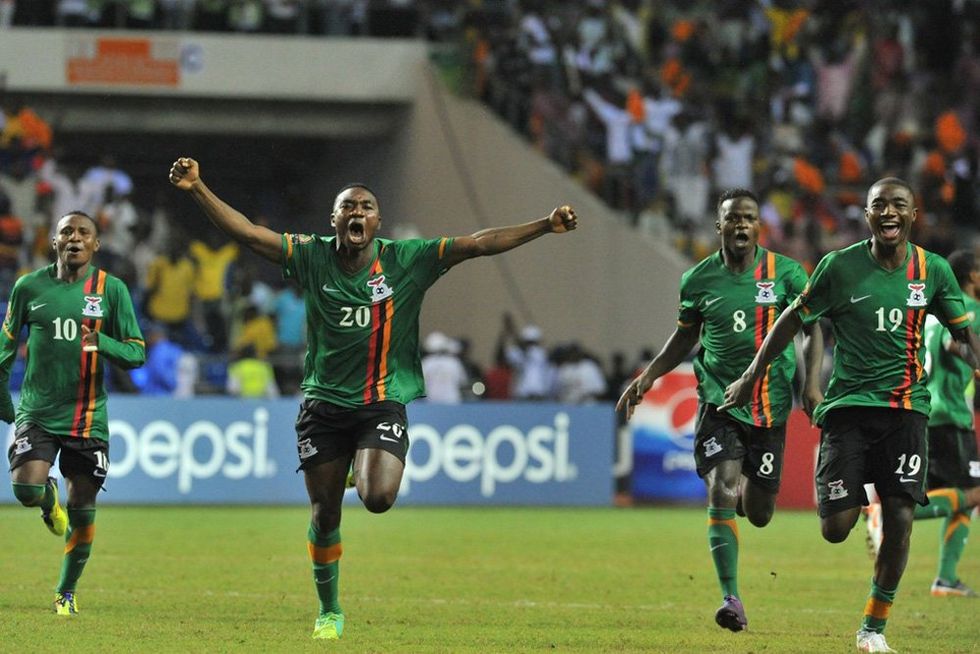
Zambia’s history not only paints a picture of triumph but of resilience as well. Often when football fans think of Zambia, the name Kalusha Bwalya is synonymous with this nation as the sole survivor of the 1993 tragedy where the national team plane crashed into the Atlantic Ocean.
The 1993 team had great promise, a torch that Bwalya kept aflame as he made it a mission to rebuild Zambia’s national team the following year. Surely enough, his efforts reverberate through history as the “Chipolopolo” (The Copper Bullets) not only broke ground as AFCON’S most consistent nation but also went on to claim the title of Africa’s giant at the 28th edition of the Africa Cup of Nations.
The highlights leading to Zambia’s victory hinted at the start with the team’s 7 points progressing to the knockout stages without a loss. The Chipolopolos went on and beat Sudan 3-0 in the quarter-finals, maintaining a steady form by clinching their spot in the final beating Ghana by 1 goal to none in the semi-finals.
The final was palpable with attacking menace from both teams as Ivory Coast got a chance to gain an advantage when a penalty was awarded to them after Gervinho was fouled in the box. Luckily for Zambia, star man and captain Didier Drogba missed the penalty with an off-target shot. The game went to a penalty shootout where Zambia claimed the opportunity at the 8th kick after Ivory Coast missed.
At which point Zambia took home AFCON’s trophy; a torch that perhaps the Chipolopolos lit anew to honor the names of their fallen soldiers.
Ivory Coast vs. Ghana (2015 Final)
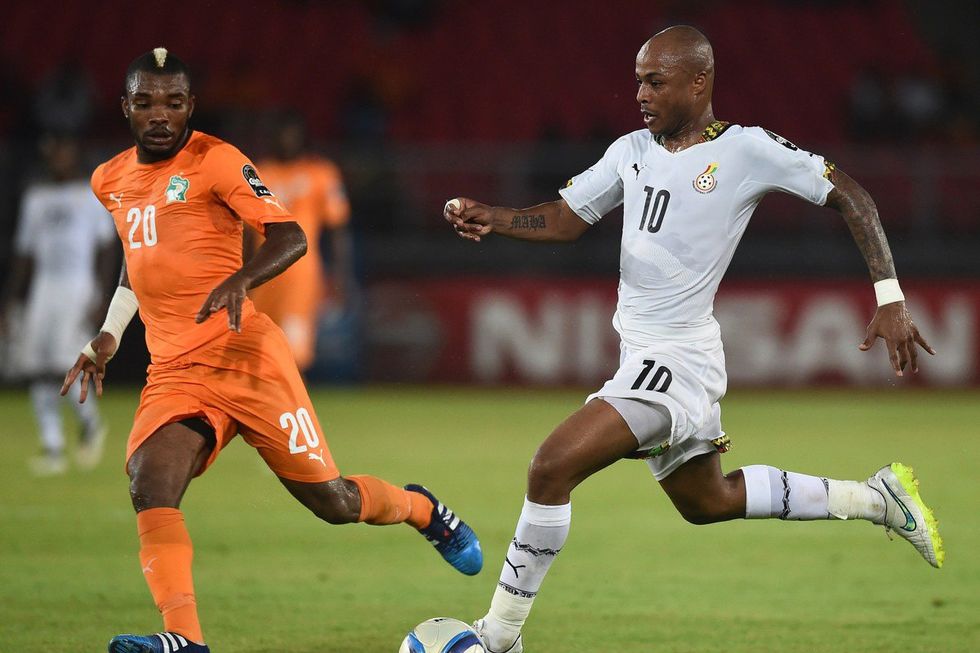
In 2015, the Ivorians came into this final with the memory of their loss in 2012 against Zambia. Their pace against Ghana was high-paced throughout and the attackers from both teams worked overtime, seizing every opportunity.
The 90-minute regular time ended goalless, and extra time later turned to a head-to-head finish at penalty kicks. Once again, Ivory Coast was at a dead-end, fearing another possible loss at an AFCON final.
Unfortunately, the Ivorians started on a weak foot and missed their first two kicks. On the other side, the Ghanaians appeared better prepared and converted their first two. But the tables turned when Ivory Coast scored their third and fourth kick contrary to Ghana missing their third and fourth, making the tie level again on penalties.
At this point, both teams made it a point to score up until their tenth kick, which in normal football fashion would be handed over to the goalkeepers stepping up to the plate. Ghana’s goalkeeper, Brimah Razak, stepped up for his kick and missed against Ivory Coast’s, Boubacar “Copa” Barry, who read it well and made the save. Barry then stepped up and slot the ball in to win for the Ivorians.
The irony of this win is that Ivory Coast employed Herve Renard as their manager, who had previously beaten them whilst managing Zambia in the 2012 final.
Egypt vs. Senegal (2022 Final)
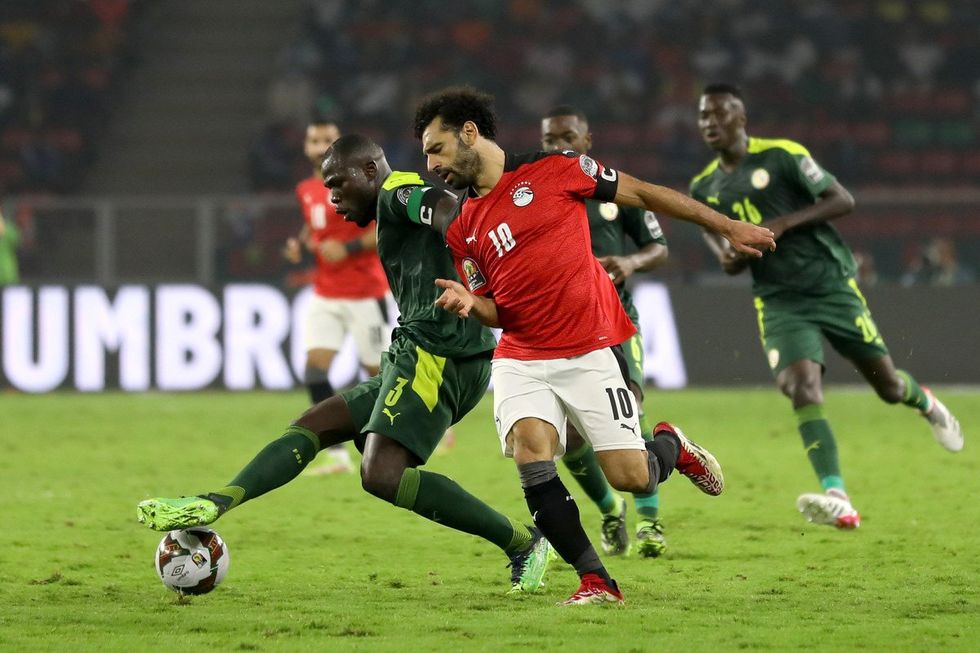
The excitement of revising history definitely offers an ecstatic hunger to relive the moments that shaped Africa’s most beloved sport. It makes one wonder about football in recent years. While there have been many games, it would be remiss to not consider the 2022 Senegal versus Egypt final. And yes, Egypt rears its head once again.
It was a game where two Premier League stars stood at a tie against each other. In the Premier League, these two teammates were both contracted to Liverpool football club in England. An avid football fan would recognize these players to be Egyptian player, Mohammed Salah and Senegalese player, Sadio Mané.
The game started with drama as Senegalese skipper and star man Mané was fouled in the box and was awarded a penalty. The game pressed on with strong competitive bouts that kept the atmosphere within the stadium tense while players fought with ground-stopping saves on each side. It was a competition that was befitting two high-profile players to go head-to-head with each other.
The rivalry went on into extra time as both teams maintained a goalless scoreline leading to penalty shouts. Although Senegal took the lead, Egypt kept a close score count which eventually left the deciding penalty in the hands of Sadio Mané who ingloriously missed a spot kick in normal time.
But the penalty kicks would work in his favor as Mané took the challenge and scored. Senegal would be crowned African kings in 2022.
Ghana vs. Nigeria 2008: The Jollof Derby
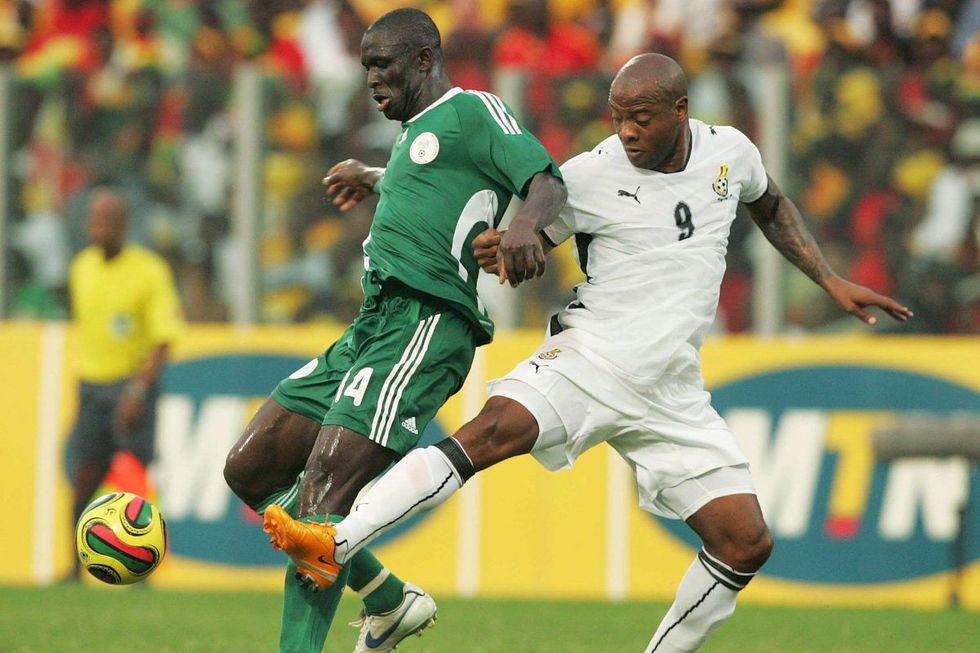
In West Africa, the debate for which country has the best jollof rice is a rivalry between Nigeria and Ghana. I’ve only ever had Nigerian jollof, so my opinion may be biased but whenever Nigeria plays Ghana in football, it is a contentious match popularly known as the Jollof Derby.
The Jollof Derby is known to be the greatest of rivalries with these nations sporting very deep-seated, socio-cultural undertones. Perhaps Ghana’s 25 victories against Nigeria’s 12 is synonymous with the jollof rice debate and on 19 occasions the game had ended in a draw.
The two nations have faced each other 56 times in all competitions. Among all their competitive games, the AFCON quarter-final in 2008 is a game to remember. Tempers were rising in the early minutes of the game as Nigeria’s Nwaneri put in an unnecessary tackle on Sulley Muntari of Ghana.
As one would expect, Ghanaian players had an immediate reaction to it. Everything in this game was executed with sheer pace and power, flying the African brand of football high. The game proceeded with tension as both teams probed several fouls; a dramatic spectacle that kept fans entertained.
In the 59th minute, Ghanaian captain John Mensah received a red card for deliberately fouling Nigerian forward Peter Odemwingie who was through on goal. Failing to capitalize on their extra man advantage, Nigeria lost the ball in the midfield where the Ghanaians found their way inside the box thus giving Muntari a clear pass across the goal over to Junior Agogo for a tap-in goal.
Ghana was toiling with the Nigerians after their second goal. With the additional boost of their fans, Ghana began showing off their tricks in the final three minutes which ended with a final score of 2-1 to the Ghanaians.
Egypt vs. Cameroon (2008 Final)
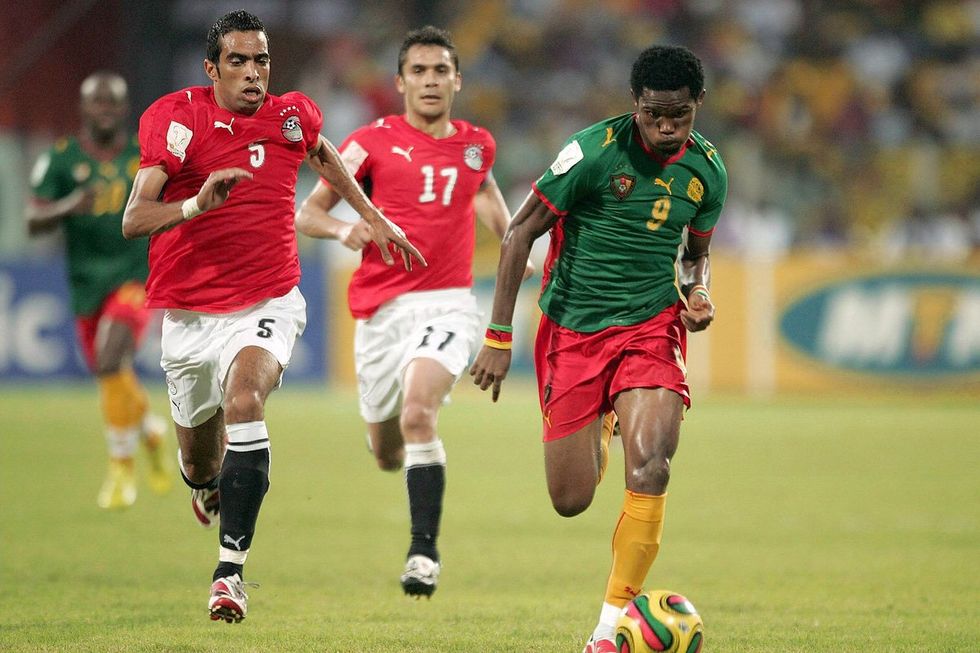
Egypt had an undeniable dominance in the AFCON tournament, clinching three titles from 2006 to 2010. The domination of African football allowed them a 7th title, more than any other African country. The “Pharaohs” as they are colloquially known, made history during this run.
In 2008, they were drawn into Group C. It was their first match of the group in which they played against Cameroon that caught fans’ attention. The Pharaohs fielded a star-studded team of which some were unknown but very quickly made their mark.
Egypt scored goals by half time but it was the man of the moment, Mohammed Zidan, who stood out having scored the second and third goals. Zidan’s goal-scoring celebration delighted fans with his “bouncing boot” celebration symbolic of a “hot boot”. Cameroon pulled one back in the 52nd minute with their star captain Samuel Eto’o who played at Barcelona at the time.
The teams’ all-encompassing prowess was marked by high competition; scoring goals at an impressive pace and numbers with Hosni Abd Rabo scoring a 4th for the Egyptians. Then Samuel Eto’o completed his brace by scoring a second for Cameroon.
This was the start that led Egypt to win the second consecutive African Cup in a row. After this game, one would assign a fiefdom to Egypt for their elite performance but Cameroon held its own meeting with Egypt yet again at the final of the 2008 AFCON.
It’s not often that two teams leave the same group to meet each other again at the final. Despite their best effort, Cameroon was defeated by Egypt, a second triumph in the same tournament. This should perhaps be classified as an additional entry to Egypt’s museum exhibit “Sports Through the Ages.”




 ABR Group
ABR Group